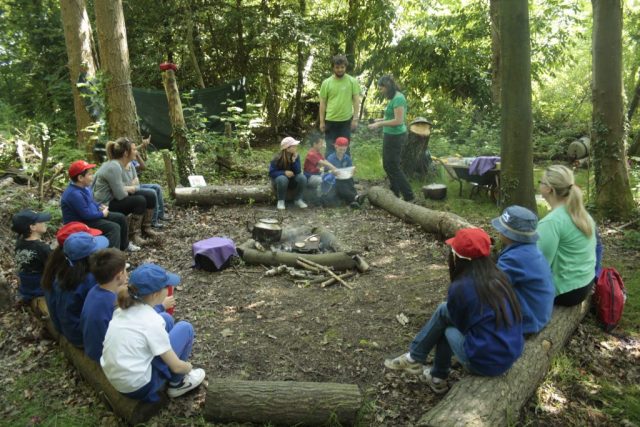
Developing the collaborative skills of an individual is very important for the collective society. Throughout human evolution, it helps us survive as social specie totally dependent on the various benefits of socialization and cooperation. This is because cooperation in society makes us more productive, strong, and resilient against major challenges. It helps us solve our complex problems quite easily, personal or social. As a social being, we have evolved highly through our ability to perform tasks or things with other individuals – our families, parents, siblings, cousins, neighbours, etc. We improve and make our community better through collective ideas and efforts. This is why if we are to maintain a healthy community, we should really develop the student’s skills and understanding on the importance of collaboration. In an appropriate setting, outdoor class can help develop this area.
The next one education must prioritize is the cultivation of a person’s respect and gratitude to nature. It has been scientifically found out that children who grew up disconnected from nature, those who grew up in large cities and urban areas, are more prone to depression, anxiety, and other kinds of serious mental issues. They are also more prone to physical illnesses as their immune system has weaken due to lack of revitalizing elements that can be derived from regular exposure to nature such as mountains, oceans, trees, or even simple clean air and enough amount of sunshine. Therefore, if children are taught to value nature, they will grow up protecting it and living a lifestyle that is less destructive and always closed to it; to plants, trees, animals and other things in our natural environment/ecology. And as always, outdoor class exposes the students to nature more often.
Lastly, being a critical thinker and an inquisitive person is also very important for self-reflection and personal development especially in this current world afflicted by crises, from the consciousness of the people down to the environment. As the person grows up, being curious will help him/her find answers to the existential questions he/she has for life. It will lead to the interest in philosophy, arts, poetry, or other kinds of intellectual matters and subjects that are essential for maintaining a rational and ethical society. Outdoor learning can help develop this characteristic and thus, improve their abilities and personhood as they face the social world. It allows them to exercise and advance their aptitudes to solve the problems and challenges they will face in their life, individually and as a member of the society.
Reference:





